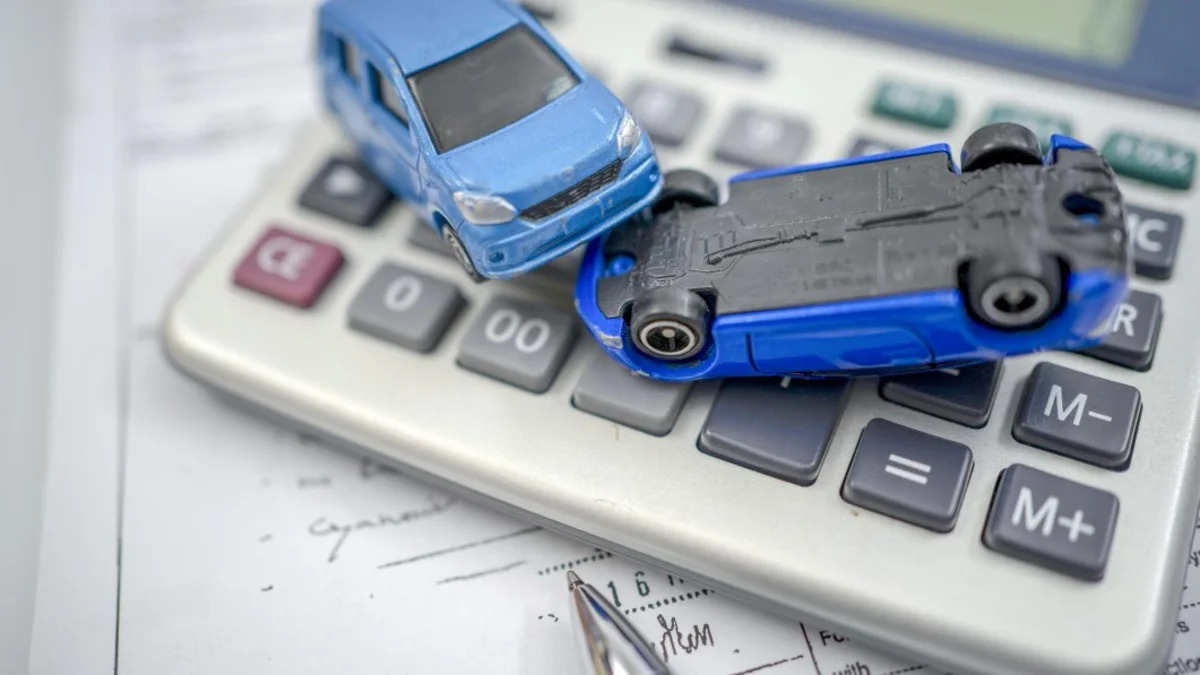Car insurance is one of those requirements in life that we never really think about until the day we need it. If we're lucky, the only time we interact with insurance is when we purchase a vehicle and when we pay for it monthly or annually. In the event a mishap occurs and you need to file a claim, you could be in for a bit of a surprise if you don't pay attention to your car insurance policy's deductible.
What is a car insurance deductible? It's the amount of money you'll have to pay before your coverage kicks in. Deductibles are set by you and can range from a few hundred to a few thousand dollars. They can also be a percentage of the vehicle's value. For example, let's say you backed your car into a light post and the body shop wants $3,000 to repair it. If you have a $1,000 deductible, the insurance company will cover the remaining $2,000 after you cough up the deductible.
Unlike health insurance, where your deductible likely accumulates over the year, vehicle insurance typically requires a deductible to be paid for each claim. That means if you have another collision a few weeks later that causes $5,000 in damages, you'll have to pay another $1,000 out-of-pocket and the insurance will cut a check for $4,000.
But what if the damage costs less than your deductible? If it's a little ding that requires $800 in minor repairs, you're on the hook for the whole amount. If the damage is slightly more than the deductible, say $1,500, you can file a claim for the remaining $500 after you pay the deductible, but it may not make the most financial sense to do so. It's possible that even a small claim may cause your insurance rate to increase the next year, and if that increase is more than that $500 insurance payout, it could be more advantageous to just pay the whole thing out-of-pocket without filing a claim.
Now you might be thinking that you should get the lowest deductible, right? That depends. The premium you pay for coverage for the year is directly affected by your deductible. If you have a low deductible, that usually means you'll be paying more to maintain coverage. If you have a high deductible, your premium will be lower.
Choosing between them should be based on what the car is worth and what you can afford. It doesn't make sense to have a $2,000 deductible for a vehicle that is only worth $3,000, nor is it a good idea to have a very low deductible and a very high premium for the same car. Most insurers have online calculators to help determine the right deductible for your car and budget.
In most cases, deductibles apply to collisions (when you hit another vehicle or object), comprehensive damage (theft, damage when parked, vandalism and other instances where you're not driving), when the other driver is uninsured or underinsured, and personal injury for medical expenses. Deductibles are usually not required for liability (injury to others or property damage), if you're injured by another motorist that is uninsured or underinsured, and your own medical expenses.
In the end, it's important to set your deductible at a sensible spot. You don't want to stress over paying one that is beyond your means if you're in an accident, nor do you want to pay too much in premiums for a lower deductible. If you're accident-prone, perhaps a low deductible may make sense. If you're supremely confident in your driving abilities, maybe a high deductible will save you money in the long run. The best advice: Do your homework and shop around.


Sign in to post
Please sign in to leave a comment.
Continue